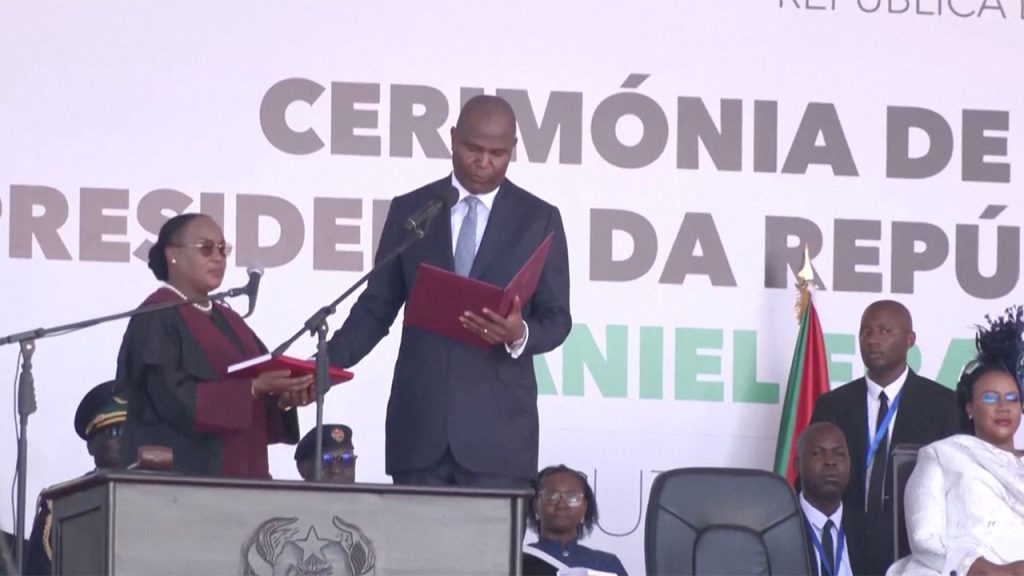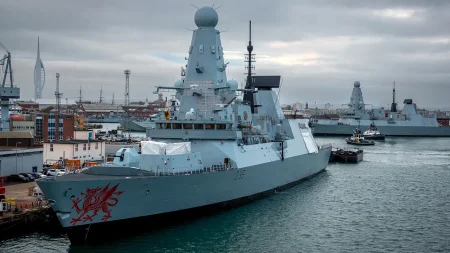Paragraph 1: Inauguration Amidst Controversy
Daniel Chapo of Mozambique’s long-ruling Frelimo party was sworn in as president on Wednesday, January 15, 2020, in a sparsely attended ceremony held in the capital city of Maputo. The inauguration followed months of protests and escalating tensions sparked by the disputed October 9, 2019, election results. Chapo’s victory has been met with widespread allegations of vote-rigging and electoral fraud, accusations vehemently denied by Frelimo. International observers have also raised concerns about the fairness and transparency of the electoral process, further fueling the post-election unrest. The low attendance at the inauguration ceremony reflected the deep divisions and anxieties gripping the nation, as citizens grappled with the implications of a contested election outcome.
Paragraph 2: A Legacy of Power and Conflict
Frelimo, the party that has dominated Mozambique’s political landscape since the end of Portuguese colonial rule in 1975, has faced increasing scrutiny and criticism in recent times. Its long reign has been marked by periods of both stability and conflict, including a devastating 15-year civil war that ended in 1992. The party’s grip on power has remained firm, despite facing numerous challenges, including accusations of corruption, human rights abuses, and a lack of political pluralism. The recent election controversy has further exacerbated these concerns, raising questions about the future of democracy and governance in Mozambique.
Paragraph 3: Promises of Stability and Reform
In his inaugural address, President Chapo sought to address the prevailing anxieties and uncertainties, emphasizing his commitment to social and political stability as the top priority of his administration. He outlined a series of policy goals aimed at addressing critical national issues, including a pledge to streamline the government by reducing the number of ministries, tackling the persistent problem of youth unemployment, and prioritizing investments in health and education. These pronouncements were intended to reassure a nation on edge, but their effectiveness remained to be seen in the face of widespread skepticism and ongoing protests.
Paragraph 4: A Nation Divided
The scene in Maputo on inauguration day painted a stark picture of a nation divided. The city center, typically bustling with activity, was eerily deserted, with a heavy presence of police and army personnel underscoring the heightened security concerns. The sparse attendance at the inauguration ceremony, with few heads of state present, further highlighted the international community’s unease with the unfolding political situation in Mozambique. Cyril Ramaphosa, the president of neighboring South Africa, was one of the few foreign leaders in attendance, signifying the delicate diplomatic balancing act required in the region.
Paragraph 5: The Opposition’s Challenge
Opposition leader Venancio Mondlane, who officially placed second in the presidential election, returned from self-imposed exile just days before the inauguration, further intensifying the political drama. He called upon his supporters to continue their protests, challenging the legitimacy of Chapo’s presidency and demanding a full investigation into the alleged electoral irregularities. Mondlane’s return galvanized the opposition movement, signaling a determined effort to hold the government accountable and push for democratic reforms.
Paragraph 6: Impact on Society and Economy
The post-election protests, which have been described as the largest against Frelimo in Mozambique’s history, have had far-reaching consequences, impacting various aspects of society and the economy. Foreign businesses operating in the resource-rich southern African nation have been affected by the unrest, facing disruptions and uncertainties in their operations. Cross-border trade has also been disrupted, with negative repercussions for regional economic activity. The protests have also forced some individuals and families to flee their homes and seek refuge in neighboring countries, adding a humanitarian dimension to the ongoing political crisis. The escalating tensions and uncertainty surrounding the election outcome have raised serious concerns about the future of Mozambique, its stability, and its prospects for development. The challenge for the new government will be to address the underlying grievances fueling the protests, restore trust in the electoral process, and build a more inclusive and democratic future for all Mozambicans.













